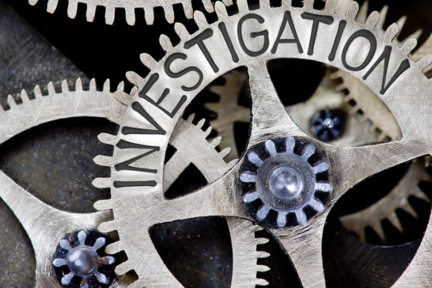WHAT HAPPENED TO MY MONEY? This is a question that many of us will ask at some point in our careers, whether or not we do everything in our power to prevent it. In order to answer this question, you will need to investigate. Forensic accountants have investigation methods that can provide clarity in these types of situations.
The methodology behind each financial investigation remains fairly constant, but with the ever-changing nature of business and more specifically fraud tactics, we need to get creative. Each situation involves a period of planning, background investigations, data collection, analysis of the facts, and preparation of findings in the form of an expert report. Each of these steps are necessary during a financial investigation, and some will be carried out in tandem at times.
Planning usually begins by meeting with legal counsel and key employees to LISTEN. Each situation needs to be treated as unique in order to see all options, possibilities, and areas of focus. This period is also used to layout key dates so that a timeline can be created for discovery and analysis. This time should be used to gain an understanding of what the puzzle may look like. This makes the planning period equally, if not more important than the rest.
The background investigation and data collection processes go hand-in-hand at times. This period is an accountant’s version/perspective of CSI. This time is used to gather information on identified parties, develop an understanding of their relationship with the client, and begin collecting pieces of the puzzle. There is no limit on the types of data that may be reviewed.
Forensic accountants have the job of taking a seemingly overwhelming amount of data, and organize it in a way that provides clarity in the form of facts. Analysis may seem to be an incredibly daunting task. Our managing director, Eric Stephens, was asked during an interview, “It sounds like there’s a lot of detective work beyond just looking at bank statements?”, he responded by saying, “There is a substantial amount of investigation. Let’s say we’re serving a client and looking at financial statements and we’re not satisfied with the data, we request source documents from the bank itself. In this age of easily manipulated documents and Photoshop, we prefer to look at original documents. Then, underlying the investigative work, there’s a tremendous amount of analytical work.” Analysis involves taking the puzzle pieces that have been gathered, placing them side-by-side, and connecting them together.
In the end, the expert report should line up with the claim that the client has made or is defending against. A forensic accountant is required to remain objective on both the plaintiff and defendant side of litigation, and understand how to best present results in either situation. The report should be testable and generally accepted in the forensic accounting profession. This should complete the puzzle and the investigation process!
If you have questions about how we would handle a particular situation, please call me at 612.455.4555.
Thanks!
